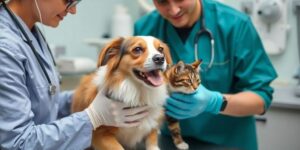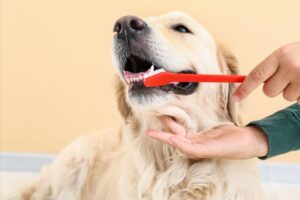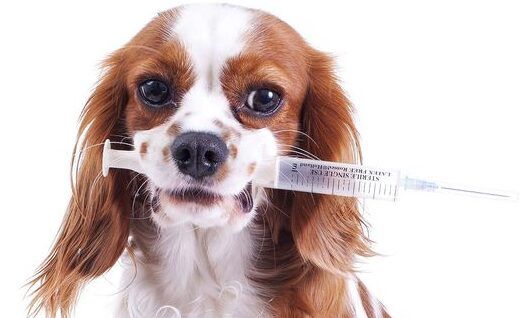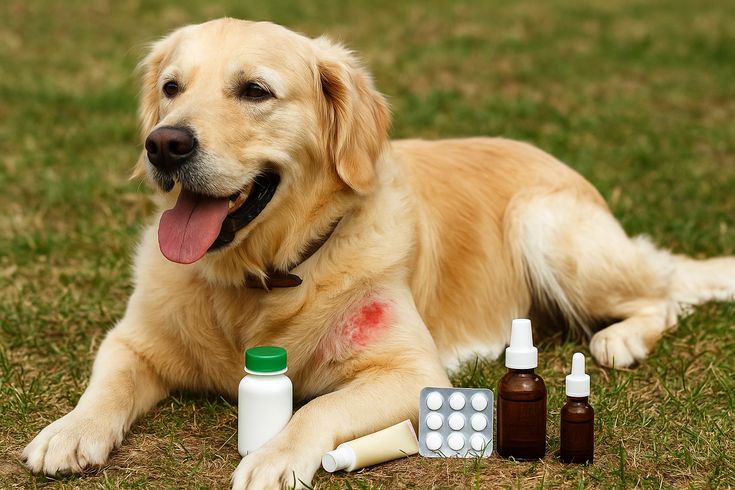The Ultimate Pet Check Guide: Keep Your Furry Friend Healthy & Happy
Introduction
Pets are more than just animals—they’re family. As responsible pet parents, we all want to make sure our furry companions live long, happy, and healthy lives. One of the best ways to achieve this is through regular Pet Checks.
A Pet Check is much more than a quick glance at your dog or cat. It’s a thorough process of monitoring their overall health, addressing potential concerns, and ensuring they receive the right preventive care. Think of it as a wellness exam designed to catch issues early and keep your pet thriving.
In this comprehensive guide, you’ll learn:
- Why Pet Checks are essential for your pet’s health
- What happens during a professional veterinary check-up
- Simple ways to check your pet’s health at home on a daily basis
- The differences in Pet Checks for puppies, kittens, adults, and senior pets
- Common health problems discovered during exams
- Costs of Pet investigation and how to budget for them
- Step-by-step checklists you can follow at home
By the end of this guide, you’ll have all the knowledge and confidence to give your pet the best care possible.
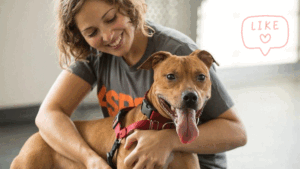
Why Pet Checks Are Essential
Preventive Care Saves Lives
Regular Pet health are the foundation of care. Just as humans visit doctors for annual exams, pets also require routine check-ups to catch issues before they become serious. Preventive care focuses on:
- Detecting diseases in early stages (such as diabetes, arthritis, or cancer)
- Ensuring vaccines are up to date
- Maintaining proper dental care
- Preventing parasites like fleas, ticks, and worms
- Monitoring weight and nutrition
Benefits of Routine Pet Checks
- Longer Life Expectancy – Pets who receive consistent medical care live healthier and longer lives.
- Lower Vet Bills Over Time – Early detection prevents costly emergency treatments.
- Peace of Mind – You’ll feel confident knowing your furry friend is healthy.
- Better Bonding – Regular grooming, handling, and check-ups improve your pet’s trust.
What Does a Complete Pet Check Include?
A professional Pet Check at the veterinarian involves several stages.
Physical Examination
During a vet exam, the following areas are checked:
- Weight & Body Condition – Obesity or malnutrition can lead to health issues.
- Eyes, Ears & Nose – Checked for discharge, infections, or irritation.
- Skin & Coat – Signs of parasites, dryness, or allergies.
- Teeth and gums – Can show signs of trouble such as tartar buildup, gum infections, or fractured teeth.
- Heart & Lungs – Listening for irregularities or breathing problems.
- Mobility & Joints – Signs of arthritis or stiffness.
Diagnostic Tests
A complete Pet care may also include:
- Blood Tests – To detect infections, organ issues, or anemia.
- Urine and fecal – Examinations help reveal parasites or potential kidney problems.
- X-Rays or Ultrasounds – For internal health monitoring.
- Allergy Testing – Especially for pets with chronic itching.

At-Home Pet Check Routine
As a pet parent, you can also perform regular at-home Pet Checks.
Daily At-Home Checks
- Monitor appetite and water intake.
- Watch for unusual bathroom habits.
- Track activity levels and mood changes.
- Inspect coat condition and grooming needs.
Weekly Pet Care
- Brush teeth or use dental chews.
- Trim nails and check paw pads.
- Look inside ears for redness, odor, or wax.
- Feel body for lumps, bumps, or swelling.
Monthly Pet Check Routine
- Weigh your pet.
- Review flea, tick, and worm medication schedule.
- Clean bedding and sanitize toys.
💡 Pro Tip: Keep a Pet Health Journal to record weight, appetite, and behavioral changes. This makes your vet visits more informative.
Pet Checks for Different Life Stages
Puppy and Kitten Pet Checks
- Vaccinations: Distemper, rabies, parvo, etc.
- Deworming: Essential for intestinal health.
- Spay/Neuter Discussions
- Growth Monitoring – Ensuring proper development.
Adult Pet Care
- Annual wellness exams.
- Regular dental cleaning.
- Baseline bloodwork for early disease detection.
Senior Pet Checks
Older pets need bi-annual check-ups.
- Arthritis screening.
- Organ function testing.
- Vision and hearing monitoring.
- Nutritional adjustments for aging.
Common Issues Found During Pet Checks
Dental Disease
Nearly 80% of dogs and around 70% of cats suffer from dental problems by the time they turn three, and if left untreated, these issues may affect vital organs like the heart, liver, and kidneys.
Skin and Coat Conditions
- Allergies (food or environmental)
- Flea infestations
- Infections or hotspots
Weight Problems
Excess weight is one of the most common yet preventable health risks in pets.
Chronic Illnesses
- Diabetes
- Kidney failure
- Thyroid imbalance
- Heart disease
Cost of a Pet Check – What to Expect
Average Costs (USA example)
- General wellness exam: $50–$150
- Vaccinations: $20–$80 each
- Dental cleaning: $200–$700
- Blood tests: $100–$200
- X-rays: $150–$300
Ways to Save on Pet Wellness
- Pet insurance plans
- Wellness packages at clinics
- Low-cost vaccination drives
- Non-profit veterinary services
How to Prepare for a Pet Check
Before the Appointment
- List unusual symptoms.
- Bring stool/urine samples.
- Note current diet, supplements, or medications.
Questions to Ask the Vet
- Is my pet’s weight healthy?
- Are vaccines up to date?
- Any dental issues I should address?
- Should I switch to a different diet?
The Emotional Side of Pet Checks
Reducing Stress for Pets
- Familiarize pets with carriers.
- Use positive reinforcement.
- Schedule appointments at quiet hours.
Building Trust Through Care
When you prioritize Pet care, your pet feels safer and more loved. This strengthens your emotional bond.
Pets Health Checklist (Printable Version0)
Daily Questions
- Eating and drinking normally?
- Regular bathroom habits?
- Active and playful?
- No coughing or sneezing?
- Coat shiny and healthy?
Building Trust Through Care
Beyond physical health, Pet Checks are also about strengthening the emotional connection between you and your furry companion.
When you gently check your pet’s ears, teeth, paws, or coat at home, they begin to trust your touch. They realize you’re not just a playmate or provider of food—you’re their protector and caregiver. This builds a deeper bond that enhances your relationship.
Regular care communicates love. Pets may not understand medical procedures, but they do understand consistency, gentle handling, and the safety you provide. Every time you invest time in their well-being, you nurture loyalty, affection, and emotional security.
Advanced Strategies to Make Pet Checks Easier
Behavior Training and Pet Checks
If your pet resists handling, it may be useful to incorporate Pet care into basic training sessions.
- Desensitization: Gradually touch your pet’s paws, ears, and mouth during playtime. Reward calm behavior with treats.
- Clicker Training: Use a clicker to mark moments of cooperation, like when your dog lets you check their teeth.
- Short Sessions: Keep home checks short—just a few minutes each day to build tolerance.
This method turns Pet care into a routine rather than an interruption, reducing stress for both you and your pet.
Using Play as a Pet Check Tool
- Playtime isn’t just for fun—it can double as a health monitoring opportunity.
- Fetch & Running: Observe mobility, energy levels, and breathing patterns.
- Tug-of-War: Check jaw strength and teeth health while playing.
- Interactive Toys: Track coordination and reaction time—useful indicators of neurological health.
By blending Pet care into games, you avoid making them seem like medical tests, and your pet remains relaxed.

The Role of Nutrition in Pet Checks
Monitoring Diet as Part of a Pet health
Nutrition has a powerful impact on your pet’s overall well-being. During every Pet Check, nutrition should be reviewed. Signs of poor diet include:
- Dull coat
- Weight gain or loss
- Digestive issues
- Lack of energy
Breed-Specific Nutrition Needs
- Large Dogs: Require joint-supporting diets.
- Small Breeds: Benefit from calorie-dense food in smaller portions.
- Cats: Must have high-protein, low-carb diets.
👉 Always discuss diet adjustments during professional Pet Checks.
Integrating Technology into Pet Checks
Smart Devices for Monitoring Health
Modern pet technology makes Pet care easier and more accurate.
- Pet Wearables: Track activity levels, sleep patterns, and even heart rate.
- Smart Feeders: Monitor food intake and prevent overeating.
- Vet Apps: Store medical history, vaccination reminders, and appointment schedules.
By combining technology with routine care, you create a comprehensive Pet Check system that ensures nothing goes unnoticed.
Pet Dental Disease
Preparing Pets for Trips
Traveling with pets requires extra attention. Before any trip, perform a Pet Check:
- Ensure vaccinations are current.
- Carry medical records.
- Pack first-aid kits and regular medications.
- Confirm parasite protection is up to date.

Airline and International Pet Checks
If traveling abroad, many countries require:
- Veterinary health certificates.
- Rabies vaccination proof.
- Microchipping.
👉 Skipping these checks can result in travel delays or quarantine for your pet.
Emotional Wellness in Pet Checks
Recognizing Signs of Stress and Anxiety
While pets can’t use words, their behavior and body language speak volumes about their health. During Pet care, look for:
- Excessive panting (dogs)
- Hiding or refusing food (cats)
- Destructive behavior
- Over-grooming
These are emotional red flags that should be addressed with training, environment changes, or even medical support.
Bonding Rituals During Pet Checks
Turn pet care into bonding rituals. For example:
- End each check with cuddle time.
- Incorporate massage while checking joints.
- Speak gently throughout the process.
Over time, your pet may even look forward to check-ups because they associate them with love and comfort.
Advanced Pet Check Checklist
Daily Emotional and Physical Checklist
- Eating and drinking normally?
- Showing playful energy?
- Engaging in bonding moments?
- No signs of anxiety or withdrawal?
Weekly Advanced Checklist
- Teeth and gums checked?
- Skin examined for dryness or allergies?
- Behavior observed for changes in mood?
- Weight tracked and logged?
Final Thoughts
A Pet Check is not just a routine task—it’s a life-saving practice that ensures your furry friend enjoys the best possible quality of life. With consistent at-home monitoring and regular veterinary check-ups, you can detect problems early, prevent illnesses, and create a happier future for your beloved companion.
Your pet depends on you. By making Pet Checks a priority, you’re showing the deepest form of love and responsibility. Ultimately, a pet’s good health leads to a happier and more joyful home.
FAQ’s
1. How often should I do a Pet Check?
- Puppies/kittens: Every month until 16 weeks.
- Adults: Once a year.
- Seniors: Every 6 months.
2. Can I do Pet Checks at home?
Yes, but home checks don’t replace professional vet exams.
3. Are Pet Checks expensive?
They can be, but preventive care saves money compared to emergency treatments.
4. Do indoor pets need Pet Checks?
Absolutely. Indoor pets can develop diseases, obesity, and dental issues too.



